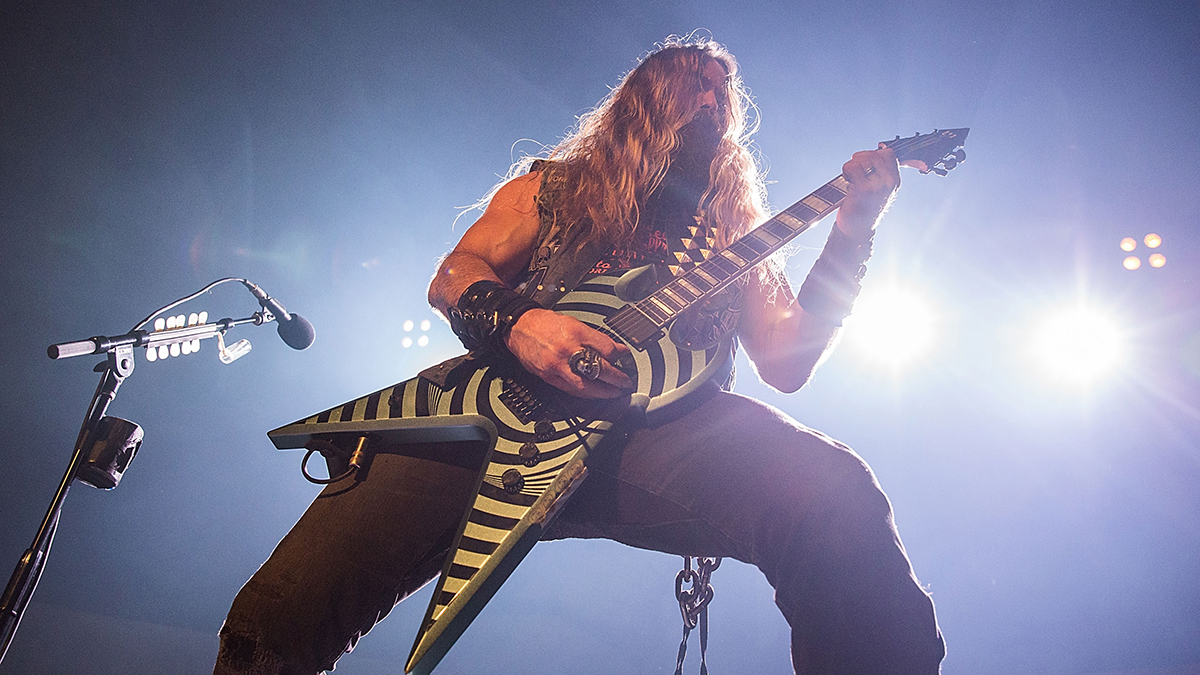Face to Face's Trever Keith: “This album focuses on the best tones and emotions from the records we’ve made throughout our career”
The long-serving frontman walks us through the gear behind No Way Out But Through, recording guitars in his closet, and why the LP doesn't fit into the traditional punk-rock mould
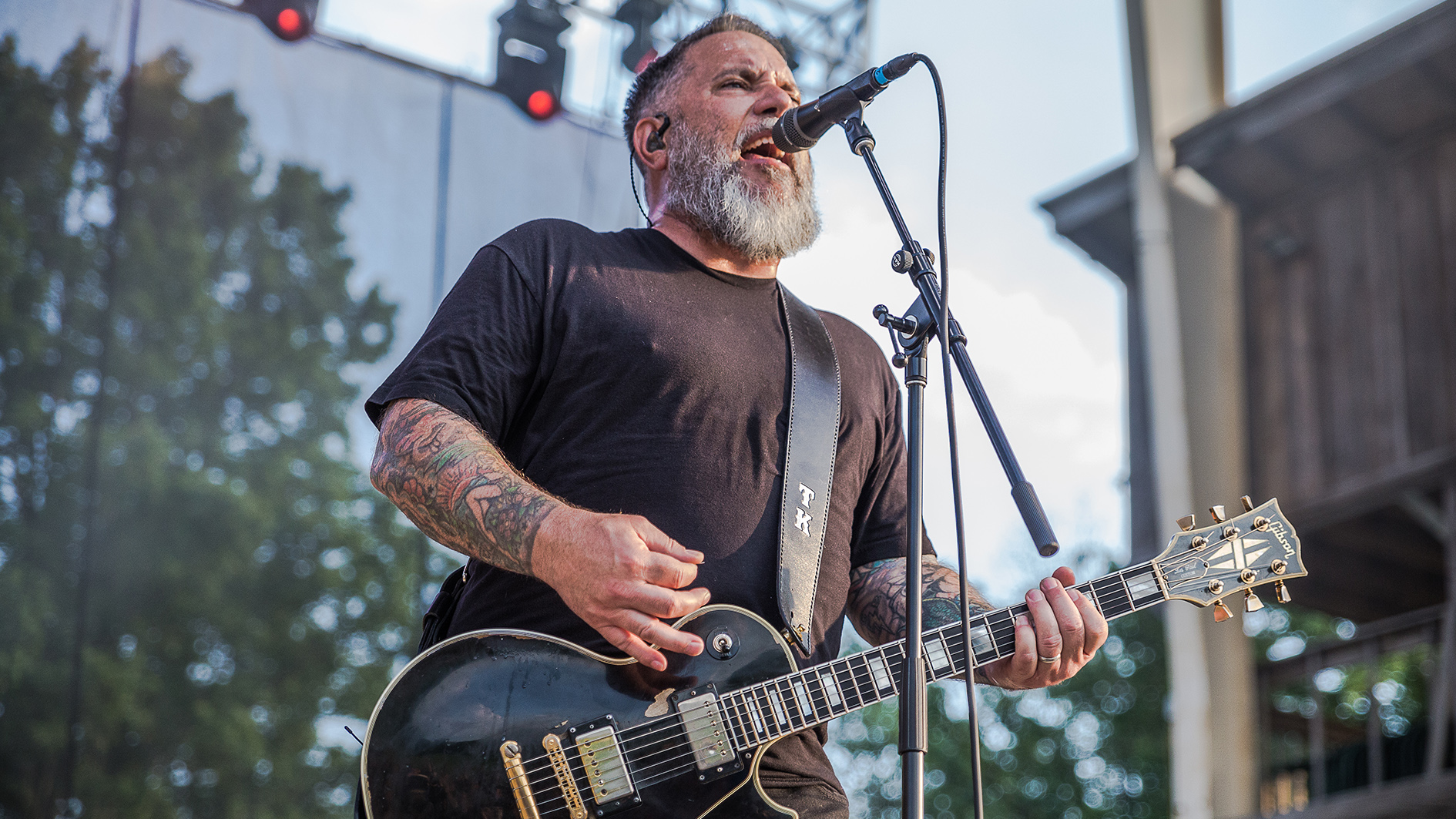
All the latest guitar news, interviews, lessons, reviews, deals and more, direct to your inbox!
You are now subscribed
Your newsletter sign-up was successful
When reached by Guitar World, Trever Keith is sitting in a parking lot in Nashville trying to remember the full gear list put to use on Face to Face’s about-to-be-released 10th album, No Way Out But Through.
You can’t blame him for spacing on the details – the beds were, well, put to bed the better part of two years ago in California; his Instagram posts help fill the gaps on the overdubs he punched in at home in Tennessee.
What’s sure is that the long-running quartet are pulsating through high-throttle, hyper-melodic pop-punk territory with the stately confidence generally accrued after 30 years in the game.
That said, it’s a record that builds on Face to Face’s classic SoCal punk sound, with Keith and lead guitarist Dennis Hill’s tones occasionally climbing towards the chorus-soaked heights of ‘80s new wave (Farewell Song), and even accidentally upping the Irons with a NWOBHM-style flair on the title track.
“I’ll make a note that it’s our 30th anniversary this year,” Keith explains of the act he founded in Victorville, CA at the start of the ‘90s. “We’ve made different kinds of records, for better or for worse. Different groups of people who follow our band love certain records and don’t like others of ours as much, but as a whole, you can look at our catalog [as something] that’s more varied than what you might expect from a typical skate-punk band.
“I think this record taps into that… I think it focuses on some of the best tones and emotions from the records that we’ve made throughout our career.”
From imperfectly awesome guitar leads to chiming Nashville tunings, Keith got into how Face to Face pushed the parameters of their punk rock legacy with No Way Out But Through.
All the latest guitar news, interviews, lessons, reviews, deals and more, direct to your inbox!
2020 was obviously a challenging year for many, and within the Face to Face camp, the onset of the pandemic led to the cancelation of your Big Choice 25th anniversary tour. With this album in mind, had the songs on No Way Out But Through been written before or after the start of the pandemic?
“They were actually written before. We were in the studio recording the basic tracks – the drums and bass – prior to the lockdown, before the government started shutting down flights and whatnot.
“Our producer, Siegfried Meier, is Canadian. We were recording out in Orange County, but he was getting concerned that if he didn’t go home, he might get stuck out here. So we made the call to go ahead and shut down while the airports were still open. Then it was just a wait-and-see situation from there.”
Last year you released an album with your son Charlie as Icarus/Daedalus, a more ambient, electronic project. Did working on something so outside of the scope of Face to Face make an impact on these recordings at all?
“Icarus/Daedalus is an artistic outlet that allows me to use a certain aspect of my creativity… and therefore I don’t try to put anything even remotely ambient sounding into a Face to Face album.
It’s a very angsty album. It’s got a ton of fire and energy, but it also taps into a little bit of melancholy – some good emotion that tempers the album from purely being an aggressive force
“That being said, I think we did take some chances [on No Way Out But Through] – we didn’t color inside the lines, per se; [We weren’t] being a good little pop-punk band. We did some things that people might not consider punk rock – in our songwriting, in the production, and [with] some of the tones.
“It’s a very angsty album. It’s got a ton of fire and energy, but it also taps into a little bit of melancholy – some good emotion that tempers the album from purely being an aggressive force.”
What are the riskiest moments on the record?
“Farewell Song doesn’t fit into your traditional punk-rock [mould]; it doesn’t have a super-fast, forbidden beat. It’s not super-aggressive, but it still represents the band very well.”
It’s not like there aren’t effects on the rest of the record, but tonally, Farewell Song comes from a different place, too. A lot of chorus effect washes, for instance. What are you generally using for effects?
“It was recorded pretty straight-up, but I think Dennis did some of the guitar parts that have a little bit of that effect on it. Dennis was using a Strymon DIG [Dual Digital] delay, and runs his distortion through a Wampler Tumnus and a Quilter amplifier. [But] a lot of those other effects were added in mixing.
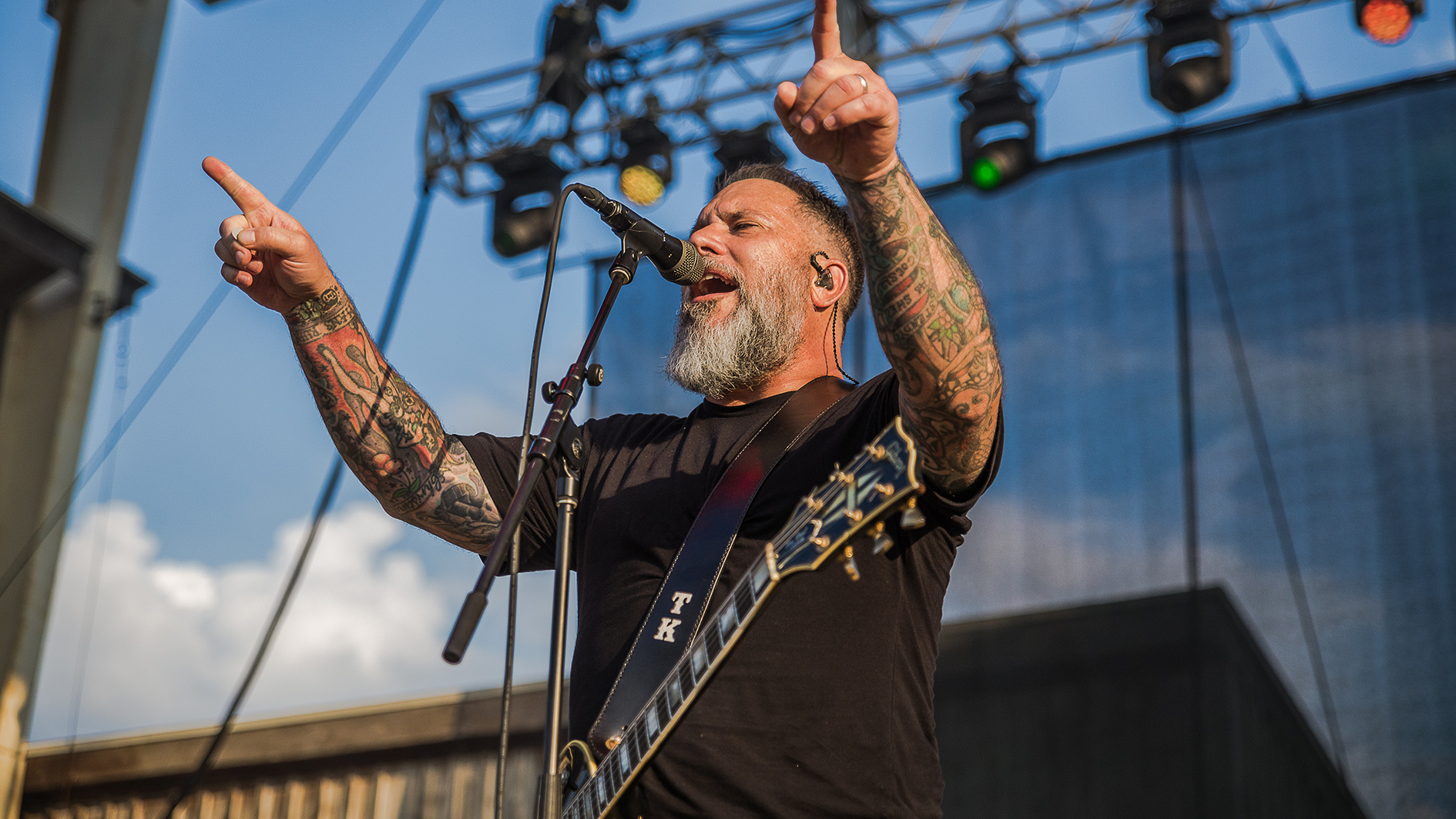
“On my pedalboard I use the Xotic SL Drive. It’s kind of like a Marshall Plexi in a box. I like that distortion an awful lot. I’m running a tuner, a distortion – I don’t really use delay or chorus in my pedalboard setup.
“For my amp, I’m using Victory Amplification, out of England. I’m using their V4 Duchess, which is basically a pedal version of an amp. It’s got tubes through the pre-amp section, and then it’s got a DC amplifier that’s 400 watts.
“I just run a speaker cable out of my pedalboard back to my guitar cabinet – I swear by 25 Watt Greenback Celestions – that’s my speaker of choice.”
There was an Instagram post you’d made last fall about tracking guitars from your bathroom, and at the time you’d pulled out a ‘60s Silvertone and a ‘70s Jazzmaster. Are those on the album?
Surprisingly enough, I recorded all of my rhythm guitar tracks at home
“They are! I used those for overdubs. I was going for something really specific on the song Anonymous. There’s this little guitar line in the verses, between the vocal breaks. That’s overdubbed with six guitar tracks. It’s subtle, but that Silvertone guitar you’d mentioned is tuned up to Nashville tuning.
“So you use a set of 12-string guitar strings and on the first four strings it’s the octave [higher]; for the B and E you use the regular strings. I use it for a higher octave sound, in addition to the rhythm track I’d recorded. I threw a couple tracks of the Jazzmaster on it, too.
“Surprisingly enough, I recorded all of my rhythm guitar tracks at home. I have a Fender Excelsior amp that’s highly modified – I yanked out the power tubes and converted it with Yellow Jackets to EL84s.
“Then I was running that Xotic Effects distortion on the front end, through a 25-watt Celestion Greenback – just diming that amp in my master closet, which is full of clothes so it’s nice and dead. I drilled a hole from the room I was working in, which is just the extra bedroom, into the closet and ran the cabling through. It was super cool, a great little setup.
“The rest of our guitar tracks were recorded by our buddy Davey Warsop at his Strong Studios, in Long Beach. We used a Marshall JCM800 50-watt; I think Dennis had his Vox AC15, and a couple cool old Valco-style tube amps. It was a combination of all those different kinds of amps.”
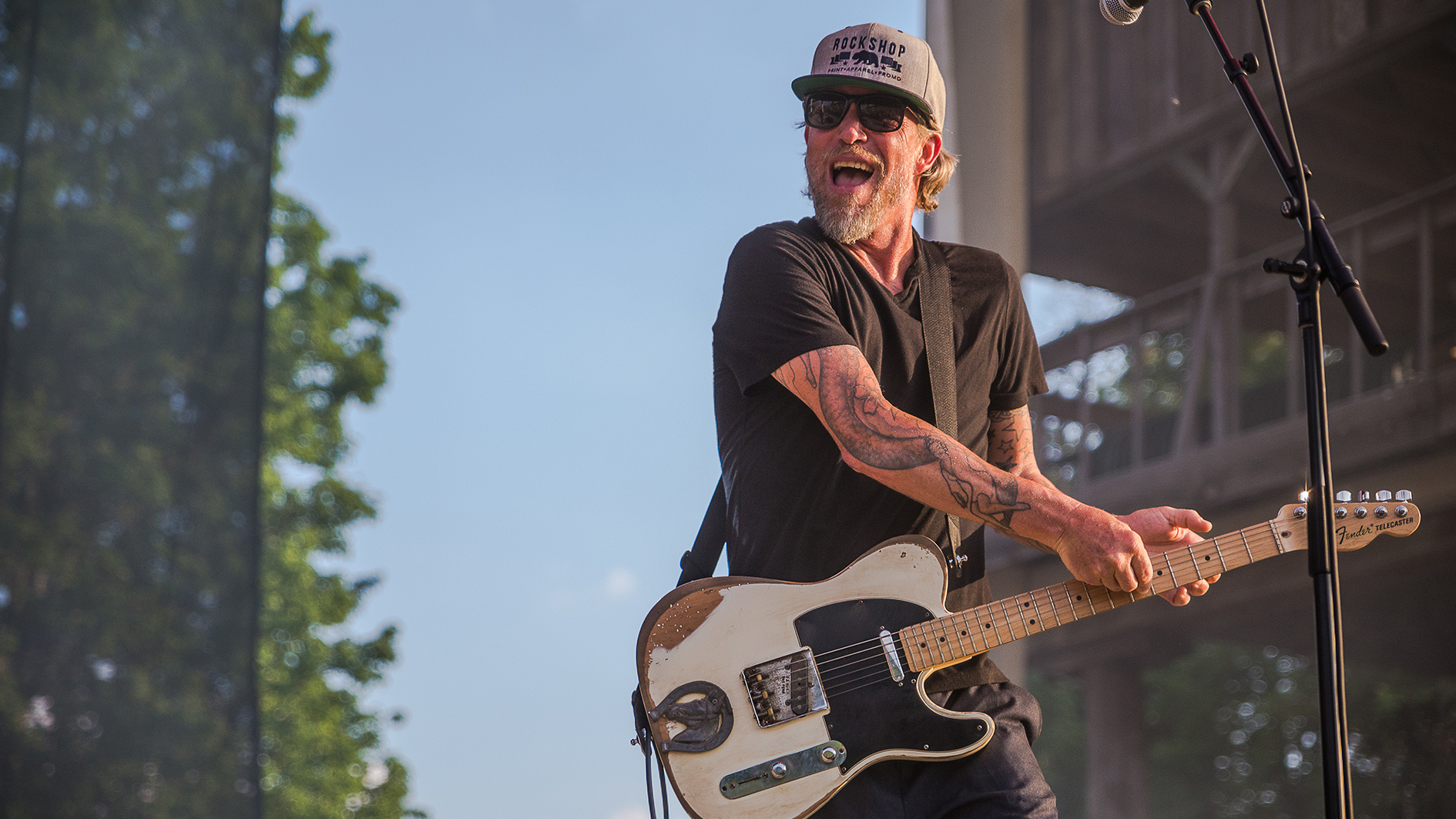
We’re at the 30th anniversary of the formation of Face to Face, but before that you and [former bassist] Matt Riddle had been in the metal band Victoria Manor, whom you’d previously explained in interviews were somewhat inspired by Iron Maiden. With the intro to the new album’s title track, No Way Out But Through, if you look at it in a certain light, the bassline arguably has a kind of a driving, Steve Harris, Aces High kind of feel to it…
“It’s hilarious that you say that, because I hadn’t had that thought when I brought the demo to Scott [Shiflett, bass]. It had the guitar riff you hear in the intro, but a slightly different version of it. In my mind, I was borrowing it from an earlier Face to Face song, but by the time Scott and I worked on the idea, brought it to the rehearsal space, and the whole band started playing it, we all made our adjustments and it became the song it is now.
It was completely unconscious, but I guess that’s one of those moments where we’re wearing our influences on our sleeve
“After we had all our basic tracks recorded, we went to Warsop’s studio to do guitar overdubs and all of the vocals. When that song came up over the speaker, the first thing Davey said was, ‘This sounds like an Iron Maiden song!’ I think it’s hilarious you picked up on that.
“That was the first point where I realized it, like, ‘Actually… it does!’ It never occurred to me that it sounds like a Maiden song. But, you know, once the vocals come in… I could never do Bruce Dickinson justice, you know, so it becomes a Face to Face song. But the music, for sure.
“It was completely unconscious, but I guess that’s one of those moments where we’re wearing our influences on our sleeve.”
How about A Miss Is as Good as a Mile? It starts with those eerie arpeggio triads in the intro, which give the song an almost Police-like vibe. Is there an Andy Summers influence in there?
“That’s exactly what that was. Before we had a title for that song I was just referring to it as ‘the Police song.’ We originally intended to do a lot more with that intro. We recorded a much longer intro that was supposed to have this Message in a Bottle kind of vibe.
“We weren’t looking to rip it off – that’s just an example of an open picking thing. In rehearsals we referred to it as ‘the Police song,’ but by the time we got down to the final version, a lot of those parts that were ‘Police-like’ ended up being edited away. They weren’t the essence of the song; it was more on the fringes.”
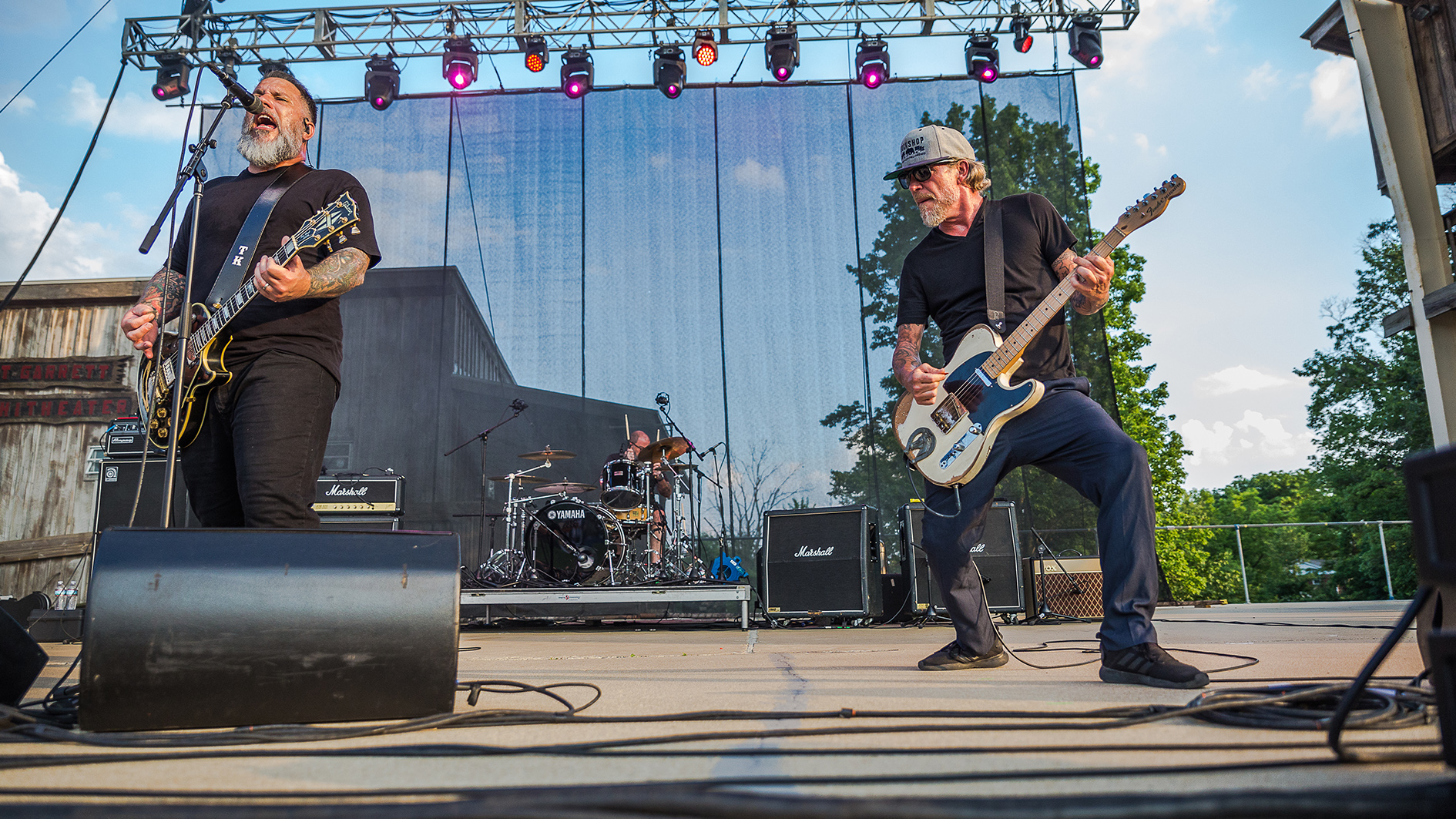
The album opens with Black Eye Specialist, which also features the biggest lead on the record. Was that you or Dennis?
“That’s Dennis, all the way. I don’t play any leads; I’m strictly a rhythm player. Scott and I were in the studio when he cut that part, and in true Dennis form – because he’s recorded on the past three or four albums with us now – he hated it. But we just moved on [laughs].
“He worked on it a bunch, but he’s typically never satisfied with his lead parts. He grimaced a bit and went, ‘I guess?’ while Scott and I were in the control room going ‘That was fucking awesome, dude! Perfect!’ I think it came out great. I’m super-happy with it.”
- Face to Face's new album No Way Out But Through is out now via Fat Wreck Chords.
Gregory Adams is a Vancouver-based arts reporter. From metal legends to emerging pop icons to the best of the basement circuit, he’s interviewed musicians across countless genres for nearly two decades, most recently with Guitar World, Bass Player, Revolver, and more – as well as through his independent newsletter, Gut Feeling. This all still blows his mind. He’s a guitar player, generally bouncing hardcore riffs off his ’52 Tele reissue and a dinged-up SG.

